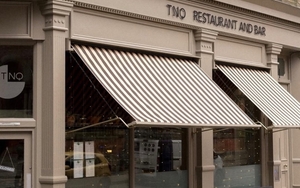Tamikka Reid explores the impact the local arts venue had on the borough and what it could offer in the future
When you think of cultural activities to do in Oldham, what’s something that comes to mind? For many it was going to the Coliseum theatre to watch a live show.
The 19th century theatre has in its lifetime had anything but a smooth ride, and yet it has played a significant part in the town’s history. Opening on Fairbottom Street in 1887, the venue attracted local residents and visitors for over 135 years.
Councillor Peter Dean, Cabinet Member for Thriving Communities and Culture, highlighted Oldham Coliseum as “one of the few producing theatres we had in the North West.”
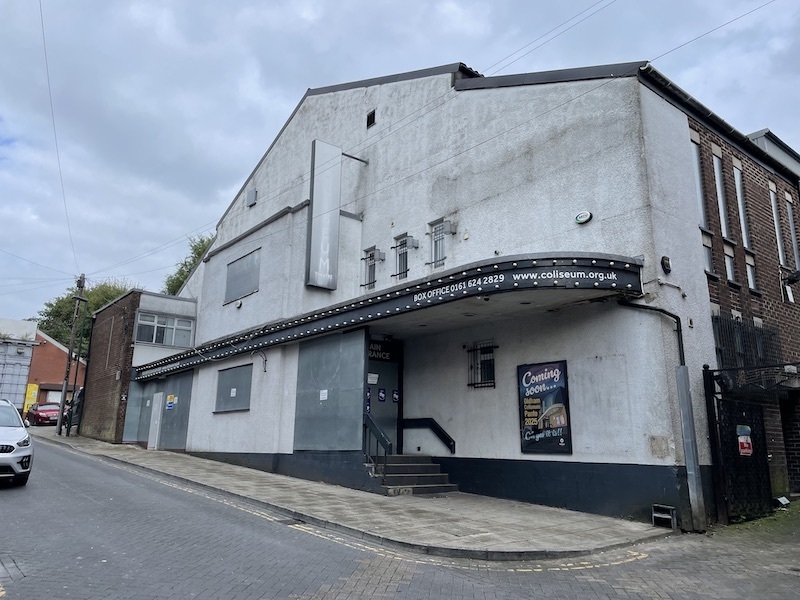
When the Arts Council announced it was cutting its funding for the theatre in 2023, the decision to close this historic building sparked outcry in the town. However, it did lead to a successful campaign - Save Oldham Coliseum - that rescued the historic venue.
Oldham Council then pledged £10m to refurbish the theatre space and reopen it in time for December 2025 and that most crucial of periods for theatres; panto season.
"The theatre acts as a strong catalyst for cultural life in Oldham,” explained Cllr Dean. "It gives so much richness to people’s lives and a way to enjoy the culture and history a town has to offer through the arts.”
He now hopes to see it once again be a thriving producing theatre.
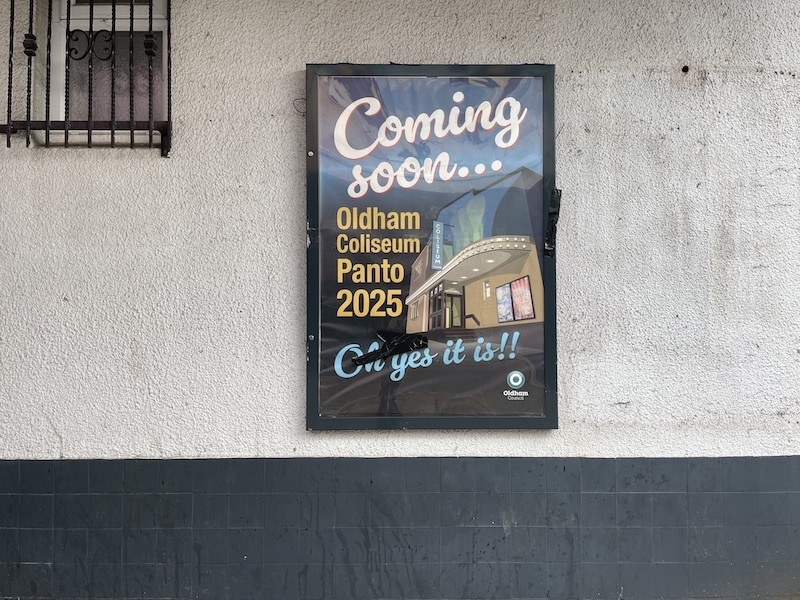
Interim Chair of Trustees at the theatre, Martina Murphy, helped shed some light on the changes that are to be made going forward.
“Oldham Council will be the operators of the Fairbottom Street theatre,” she explained. "While Oldham Coliseum Theatre company will produce, and programme work across the borough in urban and rural areas,” something she hopes will ensure they reach and serve all of Oldham.
“It is an exciting time to do things differently,” she said, explaining that at present she's “working with the council and partners to get the model right,” so that their new way of working is “financially robust.”
After a long period of uncertainty, constant back and forth and ever-changing plans, the fate of the Coliseum has finally been sealed.
The important question now is how the theatre can bring about cultural change in Oldham once it is back up and running. But to understand the impact the arts venue could have on locals' lives in the future, we must first look to the past.
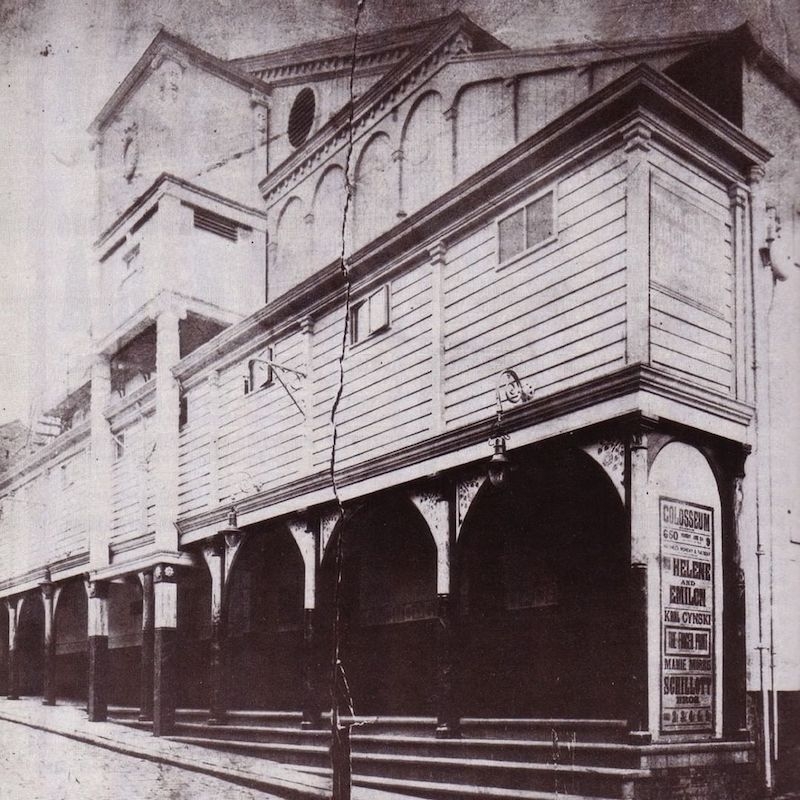
A strong sense of belonging
Research conducted by the University of Manchester shows that theatres are key social spaces for attracting locals and visitors to towns. Cultural institutions like theatres offer a place for people to gather throughout the day, helping to improve community resilience and wellbeing.
Local theatres also reportedly help to foster connections between people from all walks of life. In his 1986 book Oldham Coliseum Theatre: The First Hundred Years, James Carter outlined how this was true for the Oldham arts venue, especially amid the war.
The Coliseum continued to put on stage productions during World War II as the borough was deemed safe from conflict. Residents and visiting companies from London were in regular attendance. The theatre was also popular among troops as hundreds of soldiers would often go to enjoy the performances when in town.
Oldham locals shared a similar sentiment in the 1980s.
A Newsnight report by Joan Bakewell back in 1981 titled 'The Virtues of Oldham Coliseum Theatre' highlighted how locals felt the theatre provided an alternative place to go, particularly in the evenings.
The director at the time, Kenneth Alan Taylor, made a point to try something new and cater to a wider audience. He put on a host of plays to engage younger audiences, including the likes of Kes and Martin Sherman's Cracks, prompting an increase in younger theatre-goers.
The Levelling up Oldham report laid out how organisations like the Coliseum help towns build a strong sense of belonging and place identity, and how protecting and developing cultural places is important to ensure long term success in local areas.
Feeling proud of your community encourages people to get involved more, which in turn helps social and economic growth. This cultivation of civic pride is one essential element needed for 'levelling up' particularly in smaller towns like Oldham, the review concluded.
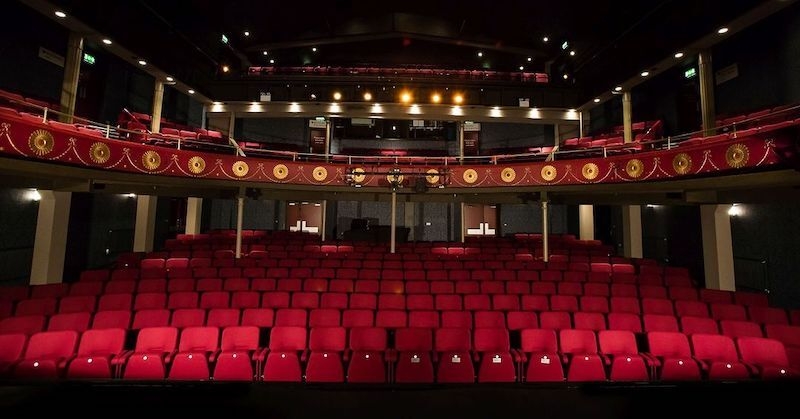
Long-lasting memories
Many people find community theatre culturally enriching as it can help them to expand their tastes and create long-lasting memories. Often productions in local theatres are mixed, encouraging audiences to go beyond what they know, reflecting a town’s heritage and delving into a diverse range of stories across different backgrounds and perspectives.
So has the Oldham Coliseum theatre managed to uphold this value over time?
“I’ve enjoyed theatres throughout my life and have been a regular attendee of the Coliseum," said Cllr Dean. "One of the things that really attracted a lot of people and set a buzz in the town was Mike Harding’s play Fur Coat and No Knickers.”
Fur Coat and No Knickers was a local comedy about people in the North West that premiered in 1980. Its stage performances originally started in Oldham, before it was then taken on a national tour.
“It’s something I remember because it seemed to energise the whole theatre community," explained Cllr Dean. "That’s what's really good about a local producing theatre. They can take a local element that seems relevant to locals, but it becomes a national entertainment event.”
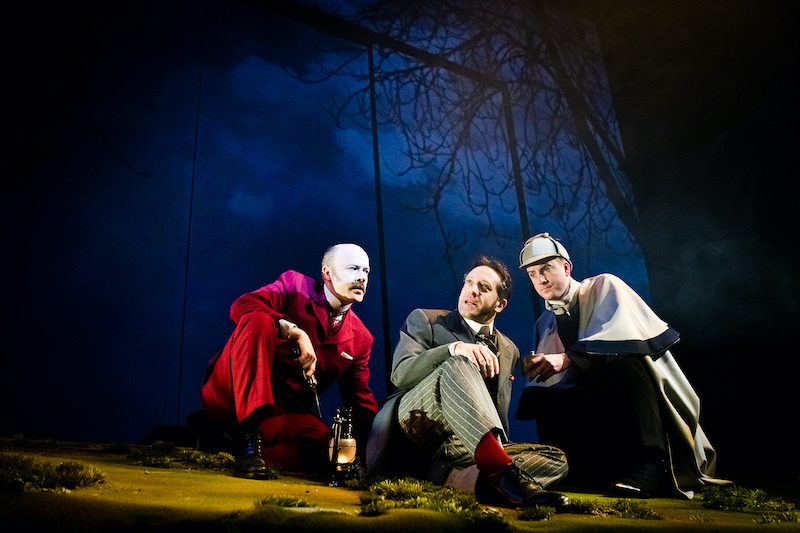
Another show that was praised for its unique storytelling was the 2012 production of Hound of The Baskervilles. The Coliseum collaborated with renowned company Imitating the Dog to bring the fan favourite tale of Holmes and Watson to the stage.
Staged at the Lawrence Batley Theatre in Huddersfield while the Coliseum was dark for a season to undergo repairs, the production's savvy use of technology cemented its place in people’s minds. In this more recent instance of the theatre building being closed, the Oldham Coliseum company has still prevailed.
Martina Murphy shared an important recent arts endeavour that the theatre company has put on. “Khushi is our annual festival of happiness,” she said. "It's a co-produced festival that focuses on South Asian music, theatre and arts.”
Despite the theatre shutting its doors, the event was able to continue and was held at Oldham Library in August.
Murphy touched on the importance of this event, saying “Khushi is a beautiful example of how sharing stories can empower people. It’s a festival that celebrates South Asian women and South Asian culture.”
"It's truly inspiring to see them come together, share their stories and tap into their own inner creative genius,” she said.
As Carter notes in The First Hundred Years, while audience figures can be precarious in nature, if plays produced are inclusive, are of interest to locals and of a high standard, history has shown that audiences will support local theatres like the Oldham Coliseum.
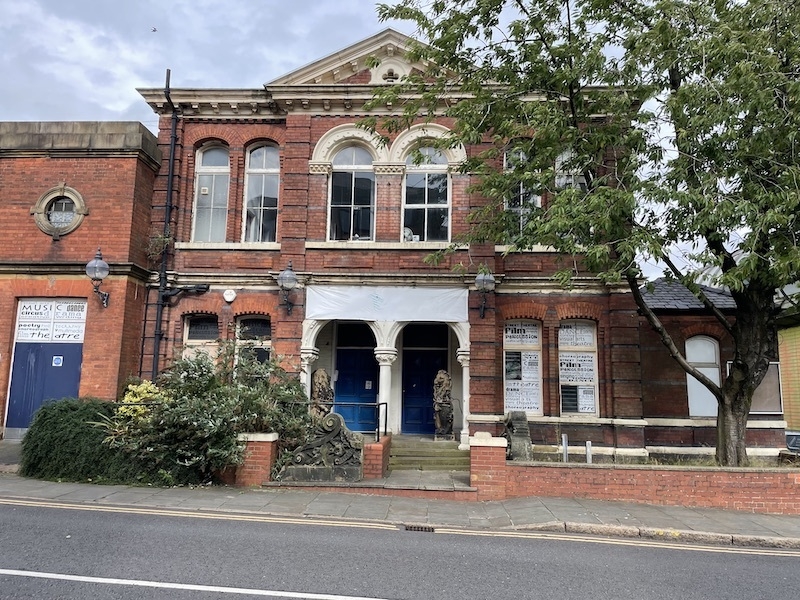
Creative training ground
It’s often noted how many locally-born actors have used Oldham Coliseum theatre as a creative training ground from which to launch their careers.
Maxine Peake (Shameless, Black Mirror), Christopher Eccleston (Cracker, Doctor Who) and Surranne Jones (Doctor Foster, Vigil) are some of the stars who've found success after early years spent in the Coliseum or its associated workshop.
Cllr Dean pointed out the key relationship between the theatre and the local drama school: “Oldham Theatre Workshop is renowned throughout the country as producing so many top-quality actors," he said. "There’s a whole list of people that have come through Oldham Theatre Workshop and subsequently starred at the Coliseum.”
House of the Dragon's Olivia Cooke and Doctor Who's Millie Gibson are the most recent actors to have taken the well-travelled route from the Theatre Workshop to wider national recognition.
When a production of Willy Russell's Our Day Out: The Musical was brought to the stage in 2014, 27 youngsters from the Oldham Theatre Workshop were cast as part of the hit musical, and starred alongside nine professionals.
Cllr Dean emphasised the council’s aim to ensure that others have the same opportunities and can follow similar pathways into the industry once the theatre reopens.
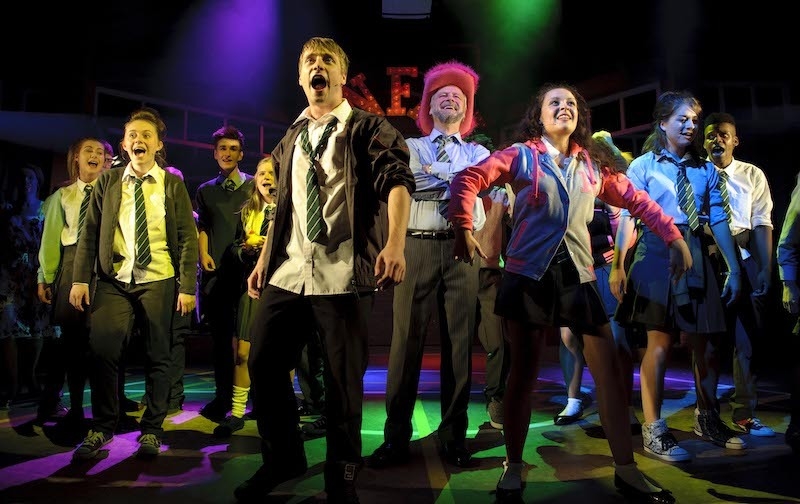
First taste of the arts
The standout production not to be missed at the Coliseum every year was the pantomime. The Coliseum put on matinees for numerous schools and for many kids it was their first taste of the arts.
While overly exaggerated and heavily theatrical, Cllr Dean explained why this art form was significant to Oldham: “The pantomime used to run over about eight weeks and almost three quarters of children in primary school went to see it.”
This is something Martina Murphy can attest to, as she explained how being exposed to the arts early on changed how she saw the world: “I am originally from Oldham and like many Oldhamers, I fell in love with theatre through the pantomime.
“It instilled a deep sense of community and a sense of belonging in me. If I can help recreate that for somebody else, I have done my job.”
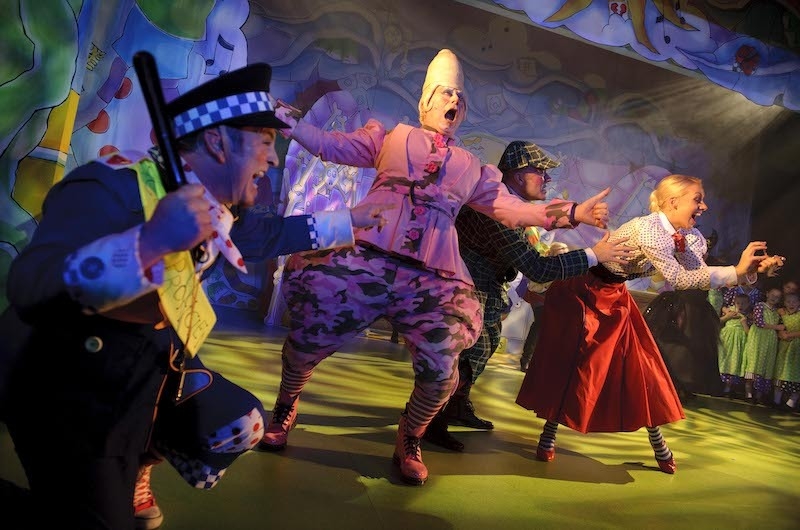
So what does Martina hope can be achieved in the future once the Coliseum reopens?
“The last twenty years has seen a decline in creative education and support for the arts more broadly," she said.
"I hope that we create a thriving cultural ecosystem in Oldham that supports the regeneration of the town, changing the social and economic landscape, and that a new generation of Oldhamers have the same opportunities I had.”
When it reopens its doors ahead of Christmas 2025 it will be the culmination of a long journey for the theatre, and one that looks set to continue long into the future.
Header image credit: Joel Chester Fildes
Get the latest news to your inbox
Get the latest food & drink news and exclusive offers by email by signing up to our mailing list. This is one of the ways that Confidentials remains free to our readers and by signing up you help support our high quality, impartial and knowledgable writers. Thank you!

Join our WhatsApp group
You can also get regular updates on news, exclusives and offers by joining the Manchester Confidential WhatsApp group.













